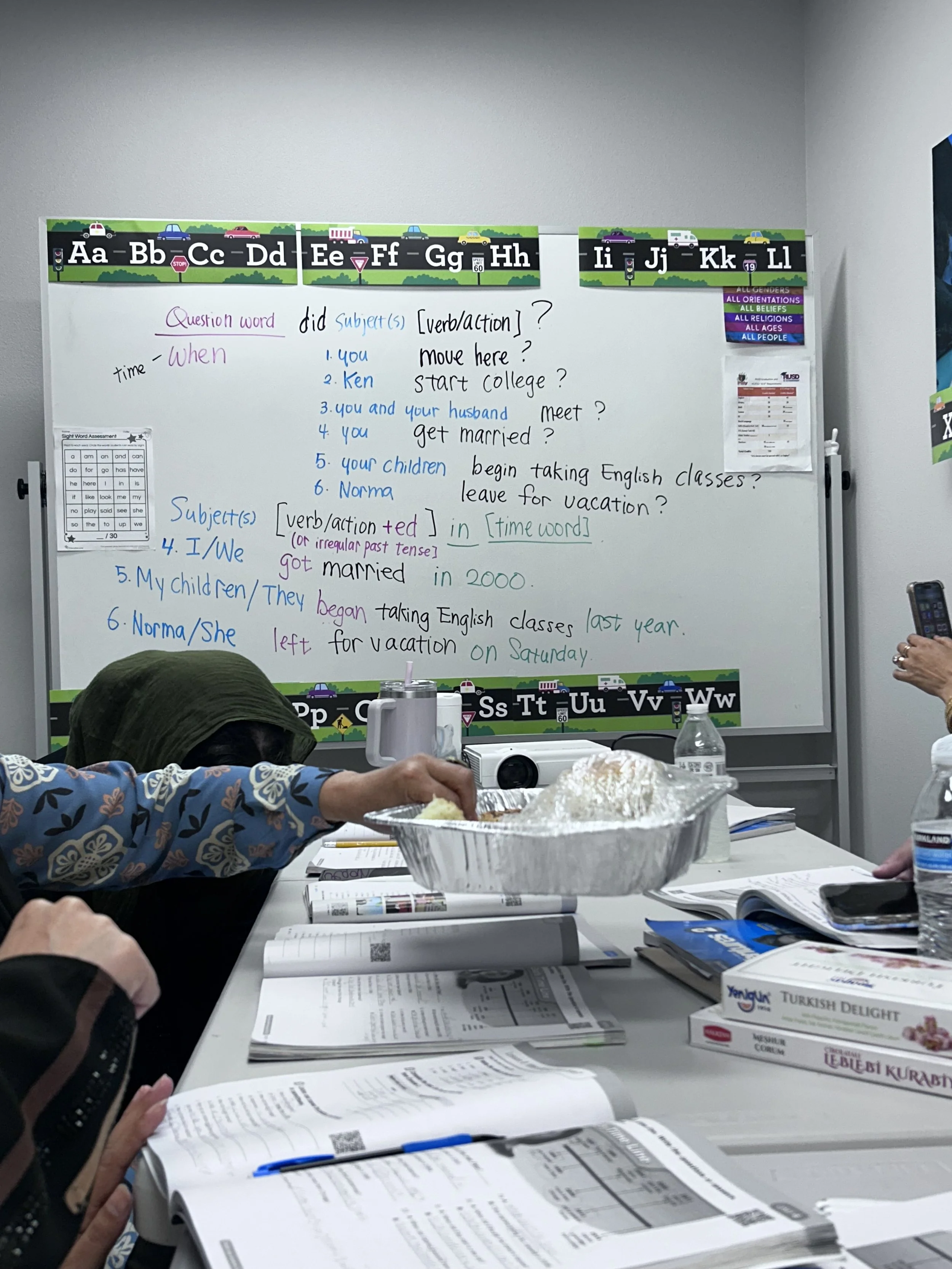HMI Intensive Program: A Community-based Classroom, Where "Impossible" Becomes "Possible" and "Accessible”
For years, newcomer women from Afghanistan were told they couldn't go to school. Their education was taken from them under various circumstances. Imagine what it looks like when they finally get the chance to start over and go to school?
When I began designing HMI’s very first Intensive English Course for adult Afghan women, I had a clear plan in mind. But I quickly learned that the real curriculum was not in the textbook, but in the trust we were building together. These women were not just learning to say "hello," they were learning to say "yes" to a new life.
Redefining a Transformative Classroom
My initial plan was to cover ten textbook units in ten weeks. I quickly learned this pace was too fast. The students were unfamiliar with standard textbook activities, so we had to slow down and walk through each task step-by-step. They were also new to digital literacy, and I spent a lot of time teaching them how to use their phones to scan QR codes for at-home review and practice. It was a good reminder that learning is not a race, and a successful program is flexible.
The most challenging part of instruction was helping my students understand the sound-spelling patterns of the English language. We spent a lot of time on minimal pairs and letter-sound combinations—the building blocks of accurate pronunciation and spelling. In the end, we only covered seven of the ten units, and I now know that was the right choice. If I were to design this course again, I would build in more time for pronunciation and spelling, and even create a self-check plan for students to track and visualize their learning progress.
Reinforcing Community-Building and Self-Help
The most rewarding part of this experience was witnessing the students helping one another. It was a proud moment for me to see them using what they had learned to support their peers, sometimes in English and at other times in their native language. This peer-to-peer support showed me that they had built a strong language foundation and, more importantly, a true sense of community.
This feeling of belonging extended beyond our lessons. We would gather for lunch, sharing both Afghan and Taiwanese food and stories. These moments, where we all sat together at a round table, were just as vital as any lesson. They were a reminder that we were not just an instructor and students, but a community helping each other build a new life in a foreign country.
Reimagining Ambition Beyond the Classroom
Beyond their English skills, I saw a remarkable growth in their ambitions. A powerful "aha!" moment came when I saw my students looking up to women in a more academically focused Intensive English Program at a UCR Extension. My students, with no hint of jealousy, were cheering on the Afghan women participating in that program. I learned the critical impacts of having role models—proof that academic success was within a woman’s reach.
Towards the end of this program, my students, who were once confined to their homes, are now dreaming of new futures. One student told me she wanted to finish all the English courses at the adult school so she could have more meaningful conversations with her doctor fiancé. Others spoke of setting a career pathway to become pharmacy technicians. HMI’s Intensive English Program was never just about a textbook. It was about giving these women a chance to write and revise their own stories. It was about providing a space where they could rebuild their confidence, rediscover their passions, and start saying "yes" to a life of their own choosing.

